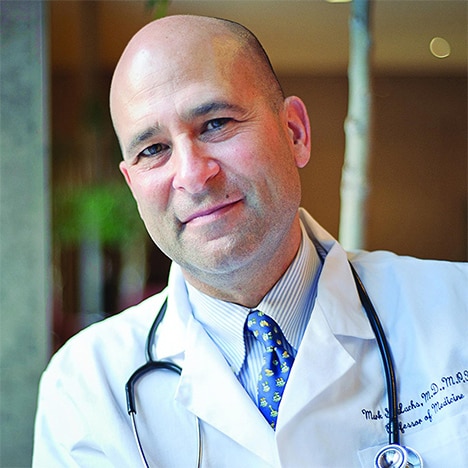
This story is part of our Skin Longevity Series featuring industry experts, thought leaders, scientists and innovators who are changing how we think about aging.
Discover more about Estée Lauder’s groundbreaking research in skin longevity science, and expert tips on how to live a longevity lifestyle.
You’ve probably heard the word “lifespan” a million times throughout your life. But have you ever heard of a “healthspan”? As the desire to build a lifestyle focused on longevity continues to rise, so does the importance of healthspan.
What is a healthspan, exactly? How is it different from a lifespan, and most importantly, how are the two connected?
Aging expert Dr. Mark Lachs has dedicated his career to research, care and advocacy focused on patients living a longer, more fulfilling life. Discover Dr. Lachs’ guide to healthspan vs. lifespan, including his tips for creating a longevity lifestyle and his best advice for aging well.
Can you explain the difference between healthspan vs. lifespan? What is the connection between the two?
Dr. Lachs: Lifespan is simply a number. It’s how long you live. “Healthspan” is how long you live with all of your functional abilities intact— physical, mental, emotional, social—and how long you’re able to do all things you want to do.
As your chronological age increases, the goal is to get healthspan to be close to lifespan. When healthspan is as long as lifespan, it means you're enjoying your life without a significant decrease in your functional abilities.
What should be someone’s main considerations when creating a lifestyle focused on longevity?
Dr. Lachs:
Creating a lifestyle focused on longevity doesn’t have to be complicated:
- Exercise and mobility are essential. Keep moving! You don’t have to be a triathlete. Modest mobility, like daily walking, is just fine. Things in motion stay in motion. We aging experts like to say, “motion is lotion.”
- A plant-based diet is great but if it’s not for you, whatever works to maintain ideal body weight without excessive unsaturated fat is good, too. I like to say, “moderation in excess.” The same goes for alcohol consumption.
- Stay socially engaged. You can’t have too many friends. Strong social support systems are highly correlated with longevity.
- Find and pursue three things that bring your life meaning and purpose. It can be travel, music, volunteer work, etc.
What is your best advice for aging well? When should people start to pay attention to longevity/healthy living?
Dr. Lachs: You can never start too early. Many bodily functions decline after age 18, but subtly. You can head this off by developing good habits early and making small changes. I like to use the example of a ship headed towards an iceberg. If the ship starts turning early enough, one degree at a time, it can avoid the iceberg.
What’s on the horizon in the field of longevity science?
Dr. Lachs: There are amazing things on the horizon, like the ability to measure the rate of aging through blood and other tests. Plus, the use of technology like wearables and more sophisticated smart watches to also monitor aging in combination with these tests. This will give us the ability to see how various things impact the rate of aging.
Additionally, we’ll see more scientific research on “longevity proteins.” This could potentially allow for not only a longer lifespan but also a longer healthspan, and the discovery of new ways to try to influence (not stop) the pace of aging.
